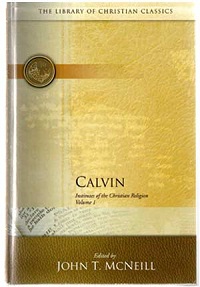 The doctrines of grace (otherwise known as the five points of Calvinism) are among the most hotly debated theological issues within Christianity. To some they are abhorrent and others they are cherished. The theological issues surrounding the doctrines of grace have been debated for centuries by generations of Christians with seemingly no end in sight regarding the tension the discussion elicits.
The doctrines of grace (otherwise known as the five points of Calvinism) are among the most hotly debated theological issues within Christianity. To some they are abhorrent and others they are cherished. The theological issues surrounding the doctrines of grace have been debated for centuries by generations of Christians with seemingly no end in sight regarding the tension the discussion elicits.
Pastor and author John Piper is no stranger to this discussion. He is perhaps the most well-known contemporary advocate of the doctrines of grace and many younger evangelicals have been persuaded by his rigorous, passionate and biblical appeal to their truths. Through Christian Focus, Piper has written Five Points: Towards a Deeper Experience of God’s Grace which is a positive contemporary presentation of the doctrines of grace. His goal in writing the book can be summed up in these words
My experience is that clear knowledge of God from the Bible is the kindling that sustains the fires of affection for God. And probably the most critical kind of knowledge is the knowledge of what God is like in salvation. That is what the five points of Calvinism are about. (8)
Realizing that much of the presentation of the doctrines of grace is given amidst, and in response to, criticism it receives, Piper wants to present the “positive biblical position” regarding the truths the doctrines of grace encompass (12).
Piper’s Summary
It is to be noted that Piper does not set out to reinvent the wheel in presenting the doctrines of grace. He presents a faithful description of the doctrines mixed with his his own characteristics that mark his writing style.
In short, here is a brief summary of the doctrines of grace:
- Total Depravity – “Our rebellion against God is total, everything we do in this rebellion is sinful, our inability to submit to God or reform ourselves is total, and we are therefore totally deserving of eternal punishment.” (22) Some relevant texts are Romans 3:9-11; 8:7-8; 14:23, John 3:20-21 and Ephesians 2:1-3.
- Irresistible Grace – “Does not mean that every influence of the Holy Spirit cannot be resisted. It means that the Holy Spirit, whenever he chooses, can overcome all resistance and make his influence irresistible (26)”…..”it makes the unwilling willing. It does not work with constraint from the outside, like hooks and chains; it works with power from the inside, like new thirst and hunger and compelling desire. (32)” Some relevant texts are Psalm 119:3, Acts 7:51; 16:14, Romans 8:7-8; 9:14-18, John 6:44 and 2 Timothy 2:24-25.
- Limited Atonement – “The atonement is the work of God in Christ on the cross in which he completes the work of his perfectly righteous life, canceled the debt of our sins, appeased his holy wrath against us, and won for us all the benefits of salvation (37)”……”And we affirm that when Christ died particularly for his bride, he did not simply create a possibility or an opportunity for salvation, but really purchased and infallibly secured for them all that is necessary to get them saved, including the grace of regeneration and the gift of faith. (40)” Some relevant texts are Jeremiah 31:31-34, Romans 3:25-26, 1 Timothy 4:10, Matthew 26:28, Hebrews 9:15, John 10:15, 26; 17:6, 9, 19 and Revelation 5:9.
- Unconditional Election – “Election refers to God’s choosing whom to save. It is unconditional on that there is no condition man must meet before God chooses to save him. Man is dead in trespasses and sins. So there is no condition he can meet before God chooses to save him from his deadness.” (53) Some relevant texts are Acts 13:48, John 10:26, Romans 8:28-33; 9:1-33 and Ephesians 1:3-6.
- Perseverance of the Saints – “The saints will and must persevere in faith and the obedience which comes from faith (63)”……”God will so work in us that those whom he has chosen for eternal salvation will be enabled by him to persevere in faith to the end and fulfill, by the power of the Holy Spirit, the requirements for a new kind of life. (68)” Some relevant texts are Romans 8:30, 1 Corinthians 15:1-2, Colossians 1:21-23, John 10:27-30 and Jeremiah 32:40
Piper spends the least amount of time on the first, second and fourth points and the most amount of time on limited atonement and perseverance of the saints. Because this is a positive presentation of the doctrines of grace Piper does not overtly respond to objections but he does anticipate them (see pgs. 38 & 48 on limited atonement and the entirety of chapter seven on perseverance of the saints for examples of this).
Conclusion
Five Points is a clear on all points, consistent, faithful to the text exegetically, faithful to Scripture in its overall biblical witness and concise enough for anyone to benefit from. As my systematic teacher Fred Zaspel says time and time again, if you accept total depravity then the rest should fall into place. This is the case and Piper shows us the way.
NOTE: I received this book for free from Christian Focus through Cross Focused Reviews and was under no obligation to provide a favorable review. The thoughts and words expressed are my own.


